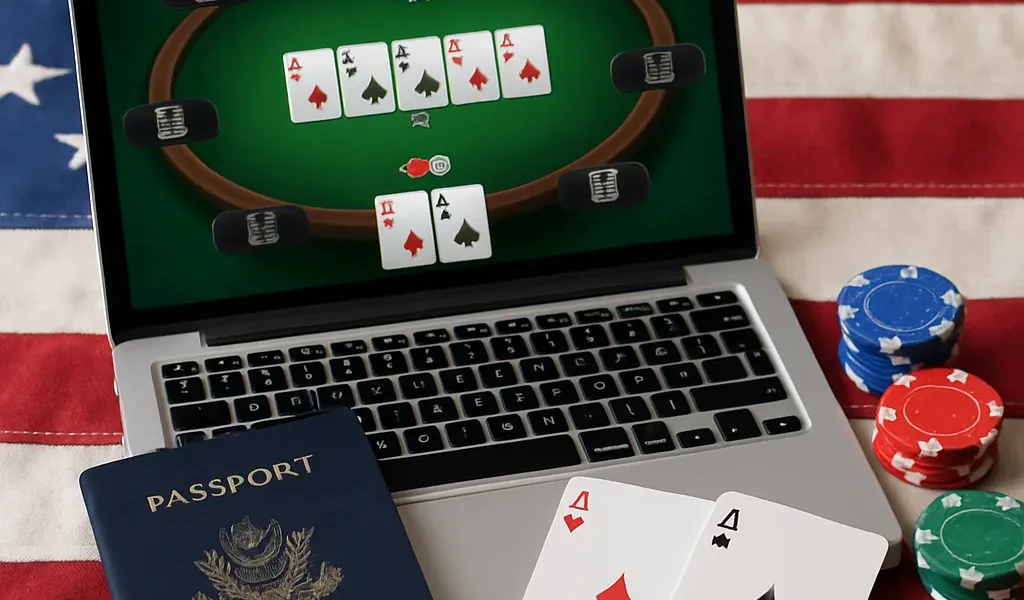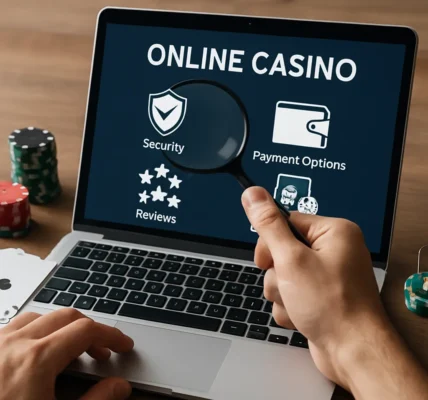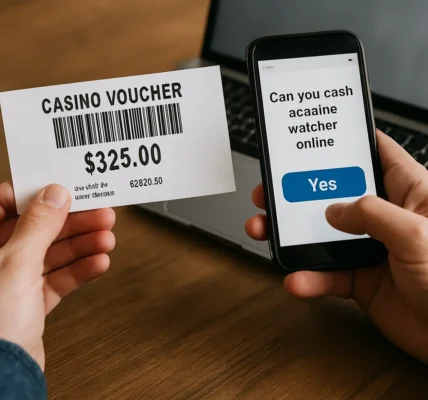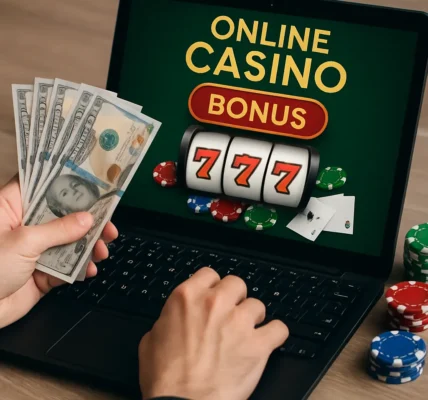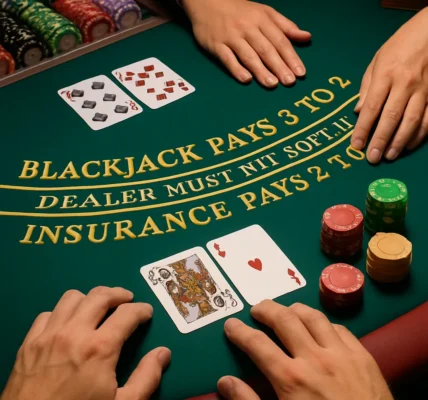If you’ve ever sat at your computer in the middle of a sleepless night, chips in a virtual stack, and your heart racing with the river card coming, you’ve probably wondered—wait, is this even legal? Am I allowed to do this? Or, are the feds gonna bust through the window and confiscate my poker chips (and let’s be real, my sad little bankroll)? The legal landscape of online poker in the US is, frankly, a mess. It changes from state to state, year to year, with federal rules thrown in just for extra confusion. I’m here to try to make sense of it all in this 2025 guide. Whether you’re an online poker veteran, a curious beginner, or just trying to get your friend to stop telling you to “join this no-risk Texas Hold’em site,” let’s dive deep into the twists, turns, and legal shenanigans of US online poker law.
Understanding Online Poker Legislation in the USA
If you’re like me, the first thing you probably want to know is—why does online poker feel like some weird legal grey area in the US? Is this by design or just governmental laziness? The truth is, online poker falls into a sort of weird intersection between old federal laws, new state experiments, and the general American tendency to moralize about gambling. You’d think, with how much people love to bet on literally anything (I mean, my office pool is out of control), we’d have figured this out. But nope. Politicians are still quibbling about what counts as a “game of skill” versus “game of chance,” and meanwhile, millions of Americans are left scratching their heads (or just playing anyway).
Federal Laws Impacting Online Poker
Oh boy, federal laws. Here’s where things start looking like a spaghetti bowl. The two you’re gonna see tossed around most are The Wire Act of 1961 and the Unlawful Internet Gambling Enforcement Act (UIGEA) of 2006. The Wire Act was written literally decades before the internet was a thing; it was mainly aimed at dudes running sports betting rings via telegraph and telephone. Over the years, the Feds have tried to stretch that law like old yoga pants to cover online poker, but there’s constant debate about its reach.
Then comes the UIGEA, which sounds scary but, honestly, is all about the money. It doesn’t criminalize players but makes it illegal for banks and payment processors to knowingly send money to and from unlicensed gambling sites. It’s like the government is saying, “We can’t stop you from playing, but we can make it really hard to cash out if you win big.” Classic.
A lot of experts (I’m talking lawyers, not the “legal advice” you get in a poker forum) say that these federal laws don’t outright ban playing online poker—they just create obstacles to making the whole thing easy or accessible. It’s confusing enough to make most casual players shrug and just play Candy Crush instead.
State-by-State Breakdown of Legal Status
Here’s the kicker: States have a ton of say over what kind of gambling is legal within their borders. Unlike your uncle Ron, who thinks he can end any family argument with “it’s a free country!”, state laws actually have a lot of teeth. Some states are super progressive, rolling out regulations and licensing to keep things legit for online poker. Others? Not so much. I mean, try playing online poker in Utah—spoiler: that’s a no-go.
The tricky part is that this keeps changing. Some states have jumped on the online poker train, while others ban it outright, and a few are stuck in legislative limbo, arguing over bills year after year. If you want to know what’s up in your state, keep reading; I break it down further below. Just know you’re not alone in being confused—I’m still checking Google every time I travel for work.
Where Can You Legally Play Online Poker in the USA?
So, let’s get to the real question most of us care about: Where can you actually sit down at a virtual table and play a legal hand? Call me old-fashioned, but I like to know the law’s on my side before I start getting too cocky with those all-in moves. I wish I could say “everywhere,” but it’s 2025 and things are still patchwork. Some states have embraced online poker with open arms, some are perpetually “almost there,” and others act like online cards are the devil.
States with Fully Legalized Online Poker
There are a few shining examples where playing online poker is totally above board. In these states, you can register, deposit, withdraw, and flop the nuts without worrying about the law. They’ve set up a whole regulatory framework, which means licensed operators, player protections, and generally a better experience. For example, New Jersey is probably the poster child. I once visited AC for a friend’s bachelor party and, trust me, they take their poker just as seriously online as in those smoky casinos.
Other states like Nevada (no surprise there) and Michigan have also signed up, so residents and even visitors can get in on the action. The great thing about playing in a legal state is a) you don’t have to worry about breaking the law, and b) you get real consumer protections if something goes sideways.
States with Pending Legislation
Some states just can’t seem to make up their minds. Every year, you hear about a bill here or a committee debate there, but nothing ever seems to pass. A bunch of lawmakers claim online poker will bring in huge revenues, but then someone else throws cold water on the whole idea with “concerns about addiction.” Rinse and repeat.
If you’re living in one of these states (looking at you, California), it’s like being perpetually stuck in traffic—you can see what you want, but you just can’t get there yet. A few of my poker buddies from Pennsylvania actually moved just across state lines to take advantage of legal games. That’s some dedication.
States Where Online Poker is Prohibited
Finally, there are states where, sorry to say, you’re just out of luck. These are places where lawmakers have drawn a line in the sand so deep you’d need a backhoe to cross it. Utah, Hawaii, and a few others not only prohibit online poker but are pretty hostile to any talk of changing things anytime soon. It’s frustrating, especially when you see friends elsewhere playing legally, but hey, that’s the USA for you—50 little countries in one.
The Big Picture: State-by-State Online Poker Legality (2025)
Before we dive into lists, let’s take a quick look at how the legal status of online poker stacks up across the country in 2025. I’ve put together this handy table—you might wanna bookmark it, especially if you travel a lot. Remember, these laws can (and do) change, but this will give you a general sense of what’s what right now.
| State | Online Poker Status (2025) | Regulated Sites? | Comments |
|---|---|---|---|
| New Jersey | Legal & Regulated | Yes | PokerStars, WSOP, BetMGM |
| Nevada | Legal & Regulated | Yes | Only WSOP NV (2025) |
| Pennsylvania | Legal & Regulated | Yes | PokerStars, BetMGM, WSOP PA |
| Michigan | Legal & Regulated | Yes | All major operators (since 2021) |
| West Virginia | Legal, No Active Sites | No | Law passed, no operators yet |
| California | Pending Legislation | No | Big debate, but no law (yet) |
| Utah | Prohibited | No | Strict ban on any gambling |
| New York | Pending Legislation | No | Slow progress in state house |
| Illinois | Pending Legislation | No | Talks ongoing since 2019 |
| Hawaii | Prohibited | No | No forms of gambling legal |
The Impact of Recent Developments on Online Poker Legality
What’s wild is how fast things change. One year, you’re clicking around some shady offshore site hoping you get paid; the next, regulated, legit platforms are popping up. The past decade has been full of drama that has directly shaped where we stand today. If you’re a poker history nerd (or just wanna impress your friends with random trivia), this section’s for you.
The Role of the Wire Act and the Unlawful Internet Gambling Enforcement Act
We touched on these earlier, but it’s insane how much confusion these two laws have caused. The Wire Act was meant to kill organized crime bookies, but then the DOJ kept flip-flopping over whether it applies to all online gambling or just sports betting. This isn’t just trivia—one overturned opinion opened doors for states to legalize online poker in 2011, but then another reversal in 2018 sent everyone scrambling.
And the UIGEA? It basically made payment processing for gambling the ultimate game of whack-a-mole. Sites were blocked left and right, banks freaked out, and a ton of legit players had money tied up for months (or years). No joke—a friend of mine got a check in the mail three years after he tried to cash out. Talk about snail mail! To this day, a lot of what poker sites can and can’t do comes down to how these two federal rules are interpreted. (And nobody really knows what the next administration will decide.)
Black Friday: What Happened and Its Aftermath
We can’t talk about online poker law without mentioning Black Friday—April 15, 2011. If you played on PokerStars, Full Tilt, or Absolute, you’ll remember seeing those logos slapped with FBI warnings. Chaos. For years, US players had gotten comfy on these offshore platforms, but suddenly the DOJ swooped in, seized domains, and froze millions in player funds.
I actually had a buddy who texted me that morning: “Bro, my $800 bankroll is gone.” It was panic all around. Suddenly, a lot of Americans realized just how risky it was to play somewhere the government could shut down overnight.
But weirdly, Black Friday also paved the way for change. Lawmakers realized they needed regulation—not wild west chaos—and states started building frameworks for legal, protected platforms. So, if you’re playing on a regulated US site in 2025, you’ve partially got Black Friday to thank for it.
The Rise of Regulated Online Poker
Here’s the good news: since about 2013, we’ve seen a steady trickle of states setting up real, regulated online poker. New Jersey and Nevada were first out the gate, and other places followed. Now, in 2025, the experience is honestly lightyears better—you don’t have to worry (as much) about rogue operators, payment issues, or disappearing balances.
Some states even have agreements to share player pools, so you’re playing against people from Nevada, New Jersey, and Michigan at once. That means bigger prize pools! If you’re picking a new site, always stick with those that are fully legal and regulated in your state—it just gives you peace of mind.
How to Choose a Legal Online Poker Site
Even if your state makes online poker legal, not all sites are made equal. Some look great on the outside but have the digital equivalent of bouncers at the door, just waiting to keep your money for no reason. Here’s what you should look out for before you jump in (and before you hand over your credit card number).
Security Features to Look For
There’s a lot of talk about “user safety” and “fair play,” but what does that mean? Fancy logos and cool avatars are great, but I want a site that invests in strong protection. Think SSL encryption (the HTTPS in your browser bar), two-factor authentication, and proper account verification. Honestly, if a site doesn’t text me a one-time code, I’m not playing there—it’s just not worth risking my info.
Plus, check for independent audits. Sites worth their salt will have regular third-party checks to make sure the software isn’t rigged and your money isn’t just vanishing into someone’s beach house fund. Whenever I hear a friend say, “Well, this site seemed fine—it only crashed twice a week,” I know they’re about to lose more than pocket Kings.
Identifying Licenses and Regulatory Compliance
Licenses matter. Like, a lot. Legal sites operating in your state will boldly display licensing info—usually at the bottom of the homepage, next to a state gaming commission logo. These aren’t just for show; they mean the company has invested serious cash and effort into following state rules. Any site that tries to hide or fudge that info? Run.
You’ll also wanna check things as simple as withdrawal times, customer support (try emailing them before you deposit!), and their reputation in player forums. A little homework goes a long way—my roommate didn’t, and he waited three months for his payout from some “Caribbean Poker Palace” site. Lesson learned.
Quick Tips: How to Stay Safe & Legal While Playing Online Poker
Alright, you’re almost ready to go all-in. Before you sign up, here’s a quick list of things I (and just about every serious player I know) recommend checking out to avoid getting burned:
- Always double-check your state’s laws before signing up. Seriously, just Google “online poker legal [Your State].”
- Stick to sites with clear licensing and regulation—look for those badges and links on the homepage.
- Use secure payment options and avoid any method that feels sketchy or overly complicated.
- Set deposit limits and keep an eye on your play. Poker’s way more fun when you’re not stressed about cash.
- Read user reviews—if lots of people are complaining, chances are you will too.
FAQs on Online Poker Legality in the USA
I get it—you’ve still got some burning questions. Honestly, most people have the same handful of queries, so I wanted to round up answers to the lingering issues in 2025. Before you hit “deal,” check out these common concerns. Maybe your own late-night worries are answered here.
-
Can I play online poker legally in my state?
Depends! Check the table above and double-check your state gaming commission’s website—laws change fast. -
Will I get in trouble for playing on an offshore poker site?
It’s rare for players to be prosecuted, but you risk losing money or having your funds frozen if the site gets shut down. -
Are winnings from online poker taxed?
Yes—like all gambling winnings in the US, you need to report them. Keep good records! -
How do I know if a site is safe?
Look at licensing info, SSL security, user reviews, and make sure they’re regulated in your state. -
Can I use a VPN to play online poker from a restricted state?
Not recommended. Most sites will catch VPN use, and if you win big, you might not get paid.
he Future of Online Poker Legality in the USA
Whew—you made it this far! If your head isn’t spinning yet, congrats, because online poker law in the US really is a beast. The landscape is (slowly) trending toward more acceptance and regulation, but you still have to be vigilant and do your homework. Personally, I wish we’d just have clear, uniform rules everywhere, but, yeah, that’s probably asking too much. Until then, stick to legal, regulated sites where you can, stay informed, and don’t be afraid to ask questions. Poker’s meant to be fun—make sure you’re not sweating the law while you play your next hand.
